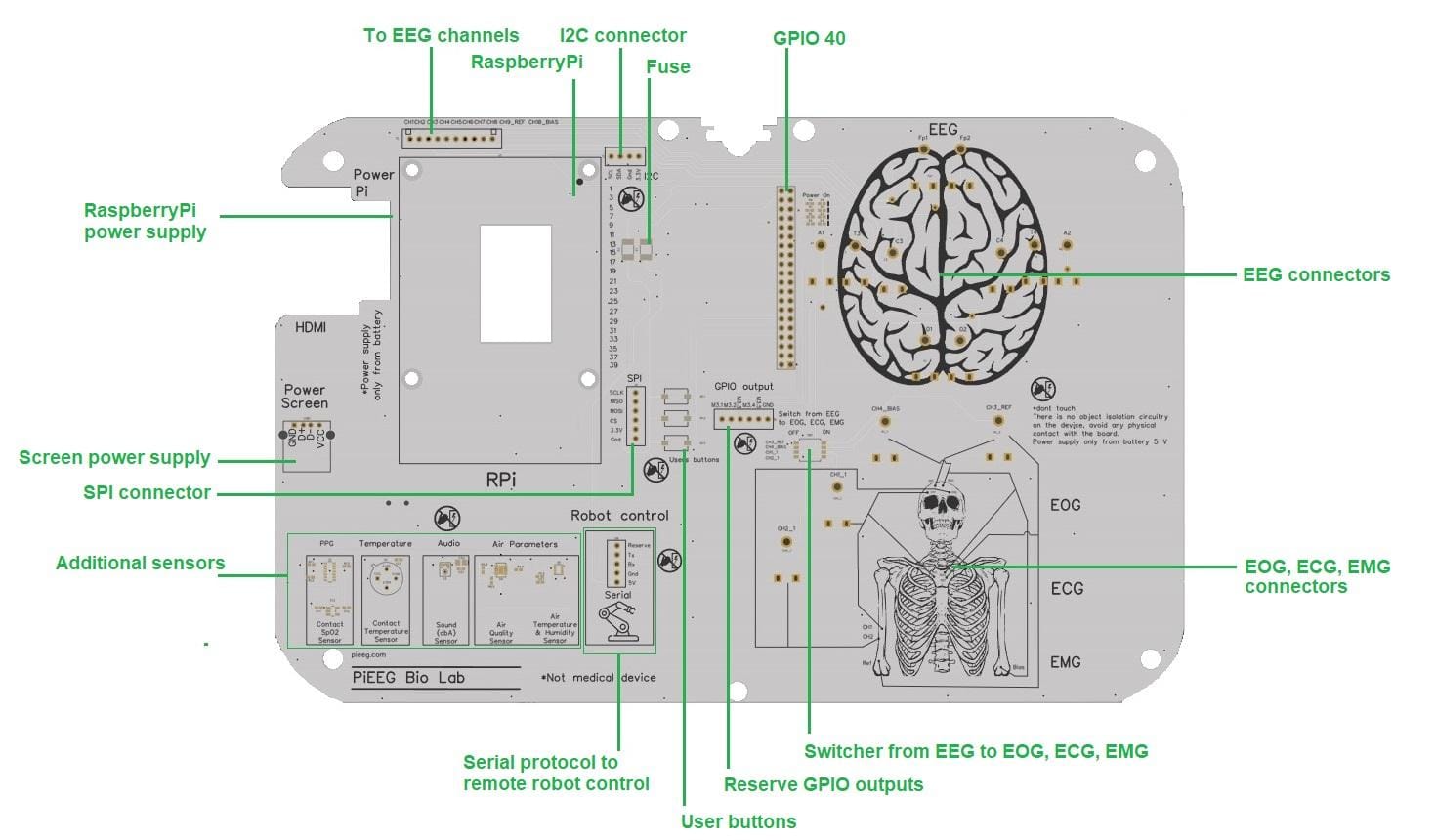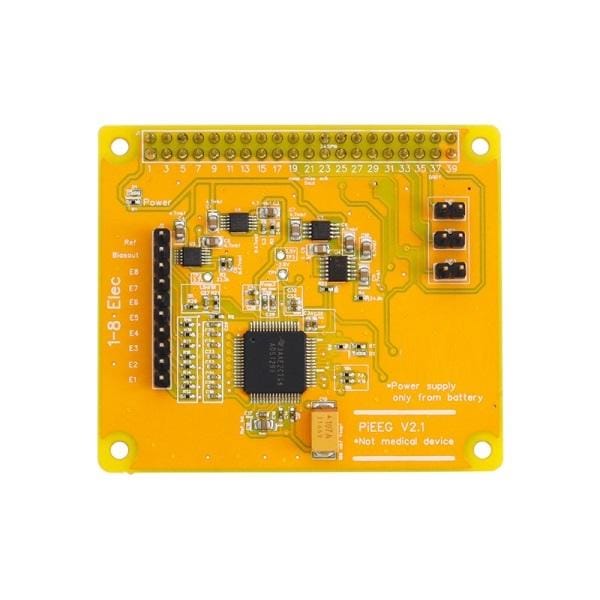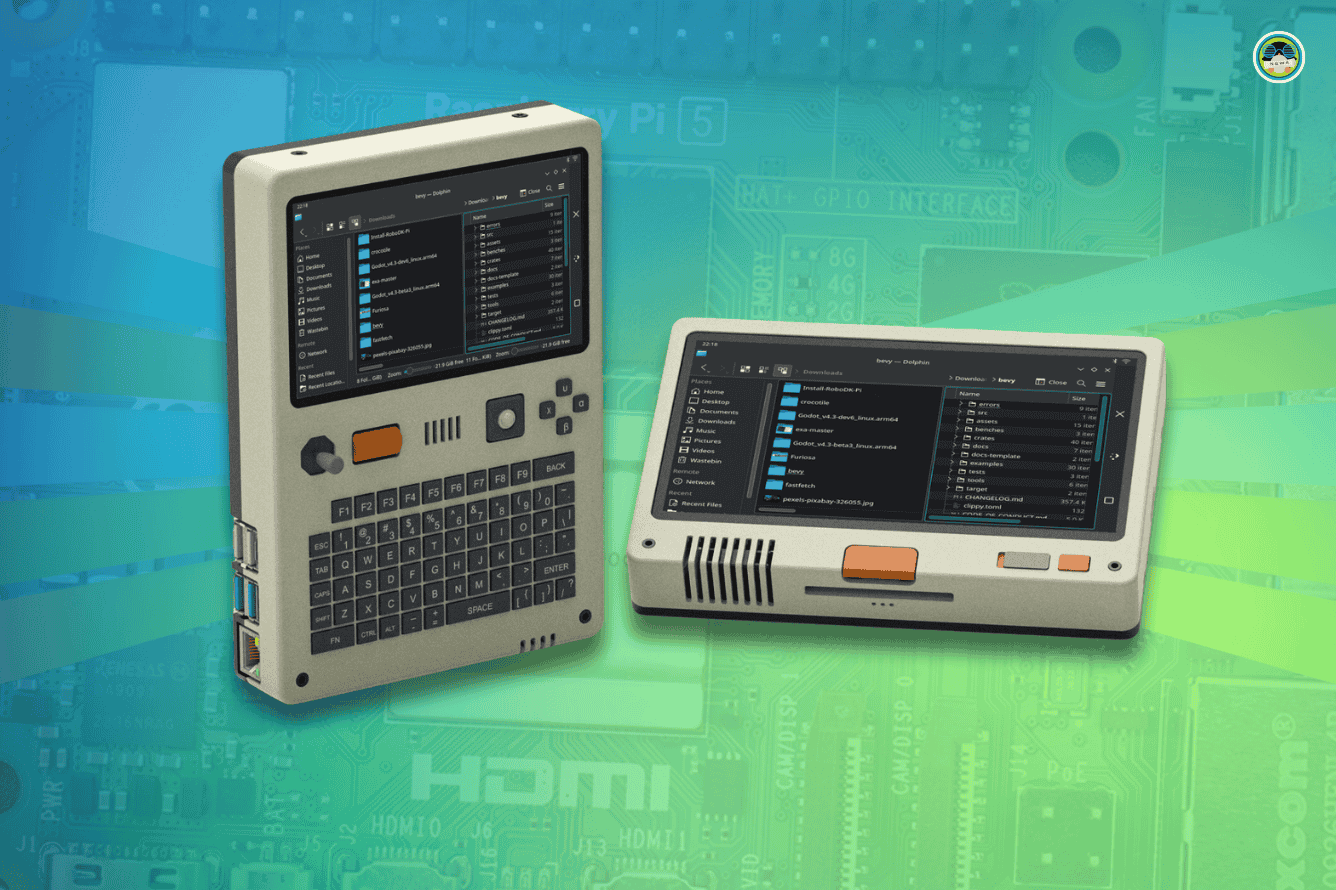
Neuroscience and Brain-Computer Interface (BCI) have revolutionized the way we understand and interact with the human brain. From decoding brain activity to enabling direct communication between flesh and machine, the field has made major gains both in terms of research and application.
In this ever-changing space, PiEEG has put forward an intriguing new offering that’s definitely worth your attention.
PiEEG Kit: What is It?
As the brainchild of Ildar Rakhmatulin, the PiEEG Kit is an open source, Raspberry Pi-powered biosignal tool that can be used to analyze EEG, EMG, EKG, and EOG signals for neuroscience research and educational purposes.
It supports seamless integration with ChatGPT for interactive data analysis and a connector that allows serial transmission for robot control.
On the hardware side of things, the PiEEG kit is powered by the PiEEG Shield, which connects directly to a Raspberry Pi, handling the capture of biosignals like EEG, EMG, EKG, and EOG.


Overview of the PiEEG Kit board on the left and the PiEEG Shield on the right.
Along with the core hardware, the kit comes loaded with essential test accessories like an EEG electrode cap and electrodes, allowing users to capture and monitor various biosignals.
All that data can be accessed using the screen, mouse, and keyboard on a custom Raspberry Pi software interface that allows users to perform a wide range of tasks. All of this is packed into a portable carry case, making it easy to transport and setup wherever needed.
The PiEEG Kit is powered by a power supply that requires an external battery, and its functionality can be expanded through various available expansion ports. It is designed for a range of users, including machine learning and data scientists, researchers, startups, students, and tech enthusiasts.
The technical paper is a must-read if you are searching for more details or the results of the assessment tests.
Want to Get/Build Yours?
If you want a fully assembled, ready-to-go solution, then you will want to keep an eye on the Indiegogo page for the PiEEG Kit. If you are up for a DIY adventure, then you can refer to the project's GitHub repo, where you will find the software, the SDK, the schematics, etc.
Suggested Read 📖

- Even the biggest players in the Linux world don't care about desktop Linux users. We do.
- We don't put informational content behind paywall. Your support keeps it open for everyone. Think of it like 'pay it forward'.
- Don't like ads? With the Plus membership, you get an ad-free reading experience.
- When millions of AI-generated content is being published daily, you read and learn from real human Linux users.
- It costs just $2 a month, less than the cost of your favorite burger.
Become a Plus Member today and join over 300 people in supporting our work.











